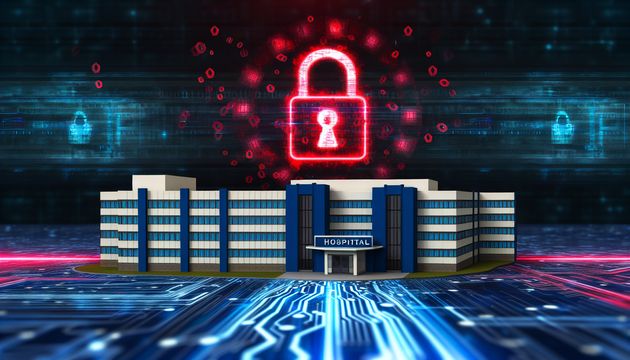
Cybercriminals Exploit Healthcare Sector by Posing as Fraud Investigators
Cybercriminals have found a lucrative target in the healthcare sector by posing as fraud investigators to steal sensitive health data. The FBI reports that these criminals use sophisticated impersonation tactics, often masquerading as legitimate health insurers or investigative team members. By crafting emails and text messages that mimic official communications, they deceive victims into revealing protected health information and financial details. This growing threat underscores the importance of vigilance and verification in communications, especially in an industry as sensitive as healthcare.
Impersonation Tactics
Cybercriminals have become increasingly sophisticated in their methods of impersonation, particularly when targeting individuals and organizations in the healthcare sector. According to the FBI, these criminals often pose as legitimate health insurers or members of investigative teams. They employ a variety of tactics to gain the trust of their victims, such as using official-sounding titles and creating email addresses that closely resemble those of real health organizations.
Email and Text Message Deception
One of the primary methods used by these scammers is sending emails and text messages that appear to be from trusted health care authorities. These messages are crafted to look legitimate, often including logos and language that mimic official communications. The goal is to pressure victims into disclosing sensitive information, such as protected health information, medical records, and personal financial details. The FBI advises individuals to be wary of unsolicited messages and to verify the authenticity of any communication by contacting their health insurance provider directly.
Social Engineering Techniques
Social engineering is a critical component of these scams. Cybercriminals use psychological manipulation to trick victims into divulging confidential information. They may claim that there is an urgent issue with the victim’s health insurance or that there is a need to verify personal data to prevent fraud. By creating a sense of urgency and fear, scammers increase the likelihood that individuals will comply with their requests without thoroughly verifying the legitimacy of the communication.
Financial Exploitation
The financial impact of these scams is significant, with victims often losing thousands of dollars. In some cases, individuals are tricked into providing reimbursements for alleged service overpayments or non-covered services. The FBI has reported that victims have been scammed out of substantial sums after being deceived into signing up for discounted medical insurance plans that do not exist.
Fake Insurance Policies
A common scam involves offering fake insurance policies through unsolicited calls, texts, and emails. These fraudulent policies are often promoted as special deals or reduced rates, enticing victims with the promise of saving money on medical expenses. However, these policies provide no actual coverage, leaving victims without insurance and out of pocket for any medical costs incurred. The FBI emphasizes the importance of verifying the legitimacy of any insurance offer before providing personal information or payment.
Redirecting Bank Transactions
In addition to stealing personal information, cybercriminals may also attempt to redirect bank transactions. This is often done through business email compromise (BEC) attacks, where scammers gain access to an organization’s email system and manipulate financial transactions for their gain. The Department of Health and Human Services (HHS) has warned that organizations in the Healthcare and Public Health (HPH) sector are particularly vulnerable to these types of attacks.
Protective Measures
To combat these scams, the FBI and other agencies have provided several recommendations to help individuals and organizations protect themselves. These measures focus on increasing awareness and implementing security practices to reduce the risk of falling victim to cybercriminals.
Multi-Factor Authentication
One of the most effective ways to protect against unauthorized access is to enable Multi-Factor Authentication (MFA) for all accounts. MFA adds an extra layer of security by requiring users to provide two or more verification factors to gain access to an account. This makes it more difficult for cybercriminals to gain access, even if they have obtained a user’s password.
Strong Passwords and Regular Updates
Using strong, unique passwords for each account is another crucial step in safeguarding personal information. Passwords should be complex, combining letters, numbers, and symbols, and should be changed regularly. Additionally, individuals should ensure that their software and systems are kept up to date with the latest security patches to protect against vulnerabilities.
Verification of Communications
Before sharing any personal or healthcare information, individuals should verify the legitimacy of any communication they receive. This can be done by contacting the organization directly using a trusted phone number or email address, rather than responding to the message or clicking on any links provided. The FBI advises being cautious of any unsolicited messages that request personal information or contain suspicious links.
Impact on Healthcare Sector
The healthcare sector is a prime target for cybercriminals due to the sensitive nature of the data it holds. The theft of health data can have severe consequences, not only for the individuals whose information is compromised but also for the organizations responsible for safeguarding it.
Data Breaches and Legal Consequences
Data breaches in the healthcare sector can lead to significant legal and financial repercussions. Organizations may face fines and legal action if they fail to protect patient data adequately. Additionally, the loss of trust from patients and partners can have long-term effects on an organization’s reputation and financial stability.
Increased Security Measures
In response to the growing threat of cybercrime, healthcare organizations are investing in enhanced security measures. This includes implementing advanced encryption technologies, conducting regular security audits, and training staff to recognize and respond to potential threats. By taking proactive steps to secure their systems, organizations can reduce the risk of data breaches and protect their patients’ information.
Government and Law Enforcement Response
The rise in cybercrime targeting the healthcare sector has prompted a robust response from government agencies and law enforcement. The FBI, along with other federal and state agencies, is actively working to combat these crimes and bring perpetrators to justice.
Public Awareness Campaigns
Public awareness campaigns are a critical component of the government’s strategy to combat cybercrime. By educating the public about the risks and warning signs of scams, agencies aim to reduce the number of victims and disrupt criminal operations. These campaigns often include tips on how to protect personal information and report suspicious activity.
Collaboration with International Partners
Cybercrime is a global issue, and effective response requires collaboration between countries. The FBI and other U.S. agencies work closely with international partners to share information, track down cybercriminals, and dismantle criminal networks. This cooperation is essential to addressing the cross-border nature of cybercrime and ensuring that perpetrators are held accountable, regardless of where they operate.
By understanding the tactics used by cybercriminals and taking proactive measures to protect themselves, individuals and organizations can reduce their risk of falling victim to these scams. The ongoing efforts of law enforcement and government agencies play a crucial role in combating cybercrime and safeguarding sensitive information.
Final Thoughts
The theft of health data by cybercriminals posing as fraud investigators highlights the critical need for robust cybersecurity measures in the healthcare sector. As the FBI and other agencies continue to combat these threats, individuals and organizations must remain vigilant. Implementing protective measures such as multi-factor authentication and regular security updates can significantly reduce the risk of falling victim to these scams. Moreover, public awareness campaigns and international collaboration are essential in addressing the global nature of cybercrime and ensuring the safety of sensitive information.
References
- FBI warns cybercriminals steal health data posing as fraud investigators. (2024). Bleeping Computer. https://www.bleepingcomputer.com/news/security/fbi-warns-cybercriminals-steal-health-data-posing-as-fraud-investigators/
- FBI warning on discount health insurance scam and doctor bills. (2024). Daily Mail. https://www.dailymail.co.uk/health/article-14703125/FBI-warning-discount-health-insurance-scam-doctor-bills.html



